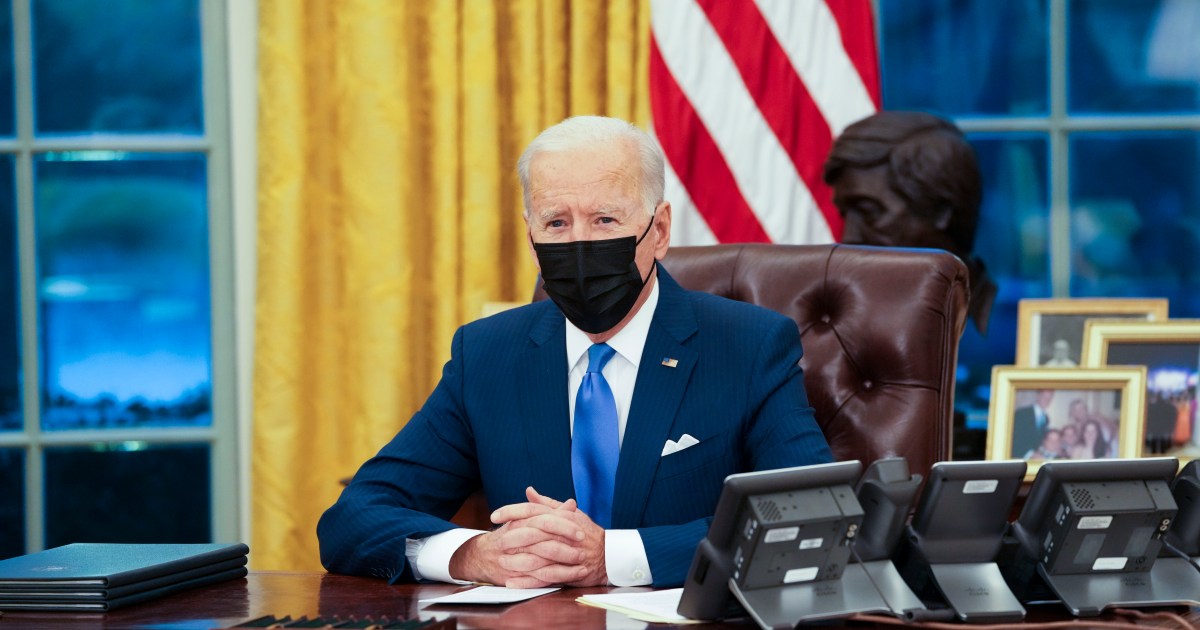In light of a limited time before the new US administration to save the nuclear agreement concluded with Iran, President Joe Biden - who wants to revive the agreement from which his predecessor Donald Trump withdrew - is supposed to reveal his plan soon.
What is the American position?
"Full respect for the sake of full respect," this is how the Democratic President summarizes the conditions for his return to the agreement signed in 2015, which is supposed to prevent Iran from acquiring a nuclear weapon.
In other words, he is ready to rejoin the signatories of the agreement, thus lifting the draconian sanctions imposed by his Republican predecessor, but on the condition that Tehran complies again with the nuclear restrictions contained in the text.
However, Tehran, which has begun to be freed from these obligations in response to the US sanctions, is demanding that Washington first lift all these punitive measures.
Is there a deadline?
In the coming days, the Iranian authorities are expected to cross a threshold that worries observers and other parties to the agreement (China, Russia, Germany, France and Britain).
Under a law passed last December by Iran's conservative Shura Council (parliament), the government must reduce the activity of inspectors from the International Atomic Energy Agency if sanctions are not lifted.
In previous statements, Foreign Minister Muhammad Javad Zarif indicated that the time limit provided by the law before taking this step ends "within the limits of February 21 (this current)."
Kelsey Davenport of the Arms Control Organization believes that most of what it describes as violations of the agreement so far by Tehran, especially in the field of uranium enrichment, "can be quickly reversed," and many experts refer in this regard to a period of less than 3 months.
But Davenport warns that "the violations that Iran has planned for the coming months are more dangerous than that ... and difficult to undo," starting with the question of inspection, because "any loss of accessibility" to Iranian sites "will feed speculation about Iran's illegal activities."
At a later date, Iran's elections next June could complicate the situation if the hardliners win.
Is there still time?
A former European Union diplomat warned that the February 21 deadline is fast approaching, and "it is necessary to activate diplomatic action," adding that "the next ten days will be crucial" to see if it is possible to "persuade Iran not to proceed" with this escalation the new.
A European source affirms that "all bets are related to that this threshold will not be crossed by that date," noting that it is "a red line for Russia and China" as well.
John Wolfstal, who was advising Biden when he was vice president, believes that the United States and Iran "are considering issuing a declaration before February 21 confirming their common intention to respect the agreement again."
Are the Americans and Iranians a dialogue?
US State Department spokesman Ned Price denied - in response to a reporter's question, last Friday - that February 21 is a deadline, and said, "We do not set any precise deadlines."
Officially, the Biden administration - which appointed Rob Malle, one of the American engineers to the text of the agreement signed in 2015, as an envoy to Iran - is currently focusing on its contacts with its European allies and other signatory countries, and direct dialogue with Tehran will only begin at a later stage.
Behind the scenes, however, believes a former White House adviser under Barack Obama, "US officials have already started talking with Iranian officials."
What are the options?
Thomas Countryman, who was an assistant secretary of state in the Obama administration, believes that the new US president can lift "some sanctions to prove his good will" by decree.
But that seems impossible unless Iran takes the first step. In both countries, leaders must demonstrate that they are "not under pressure," Countryman said.
The American right and some Democrats do not like the resumption of dialogue, and they urge Biden not to fall into Iran's arms without practical guarantees.
The other option, he said, is "a mutual declaration of intent between Tehran and Washington committing to the full return of the agreement", before negotiating the terms and the timetable.
Iranian Foreign Minister Mohammad Javad Zarif suggested that the European Union play a role to "control the rhythm" of the two hostile countries' actions.
A European source said that the old continent could be "the focus of these negotiations between the Americans, the Iranians, the Russians and the Chinese," and another believed that "everything lies in the smallest details of the sequence of steps."
Observers point to US initiatives towards Tehran to rebuild some confidence, such as assistance in the field of vaccines against the Covid-19 epidemic, humanitarian aid or economic guarantees, such as approval of an Iranian request for a loan from the International Monetary Fund.

